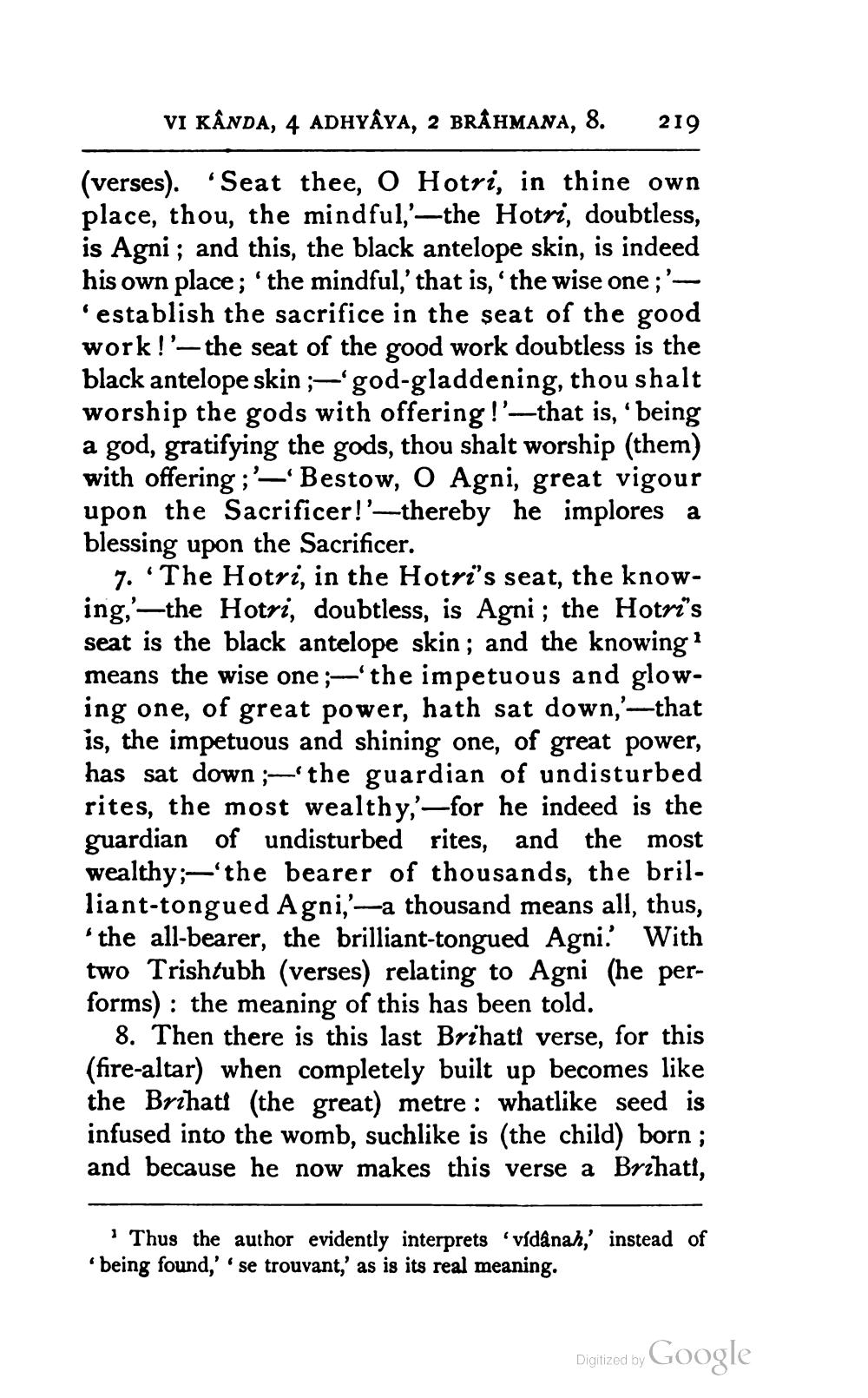________________
VI KÂNDA, 4 ADHYÂYA, 2 BRÂHMANA, 8.
219
(verses). 'Seat thee, O Hotri, in thine own place, thou, the mindful,'—the Hotri, doubtless, is Agni; and this, the black antelope skin, is indeed his own place; 'the mindful,' that is, the wise one;''establish the sacrifice in the seat of the good work!'- the seat of the good work doubtless is the black antelope skin ;-'god-gladdening, thou shalt worship the gods with offering !'—that is, 'being a god, gratifying the gods, thou shalt worship (them) with offering ; '-'Bestow, O Agni, great vigour upon the Sacrificer!'-thereby he implores a blessing upon the Sacrificer.
7. •The Hotri, in the Hotri's seat, the knowing,'—the Hotri, doubtless, is Agni; the Hotri's seat is the black antelope skin; and the knowing? means the wise one ;-'the impetuous and glowing one, of great power, hath sat down,'--that is, the impetuous and shining one, of great power, has sat down ;-the guardian of undisturbed rites, the most wealthy,'—for he indeed is the guardian of undisturbed rites, and the most wealthy;-'the bearer of thousands, the bril. liant-tongued Agni,'--a thousand means all, thus,
the all-bearer, the brilliant-tongued Agni. With two Trishtubh (verses) relating to Agni (he performs) : the meaning of this has been told.
8. Then there is this last Brihati verse, for this (fire-altar) when completely built up becomes like the Brihati (the great) metre : whatlike seed is infused into the womb, suchlike is (the child) born ; and because he now makes this verse a Brihati,
* Thus the author evidently interprets 'vídánah,' instead of being found,'' se trouvant,' as is its real meaning.
Digitized by Google




